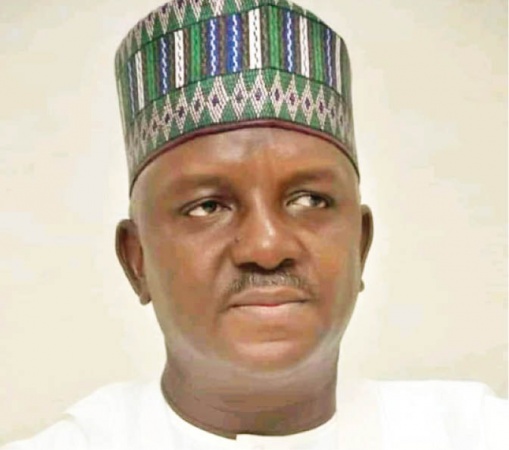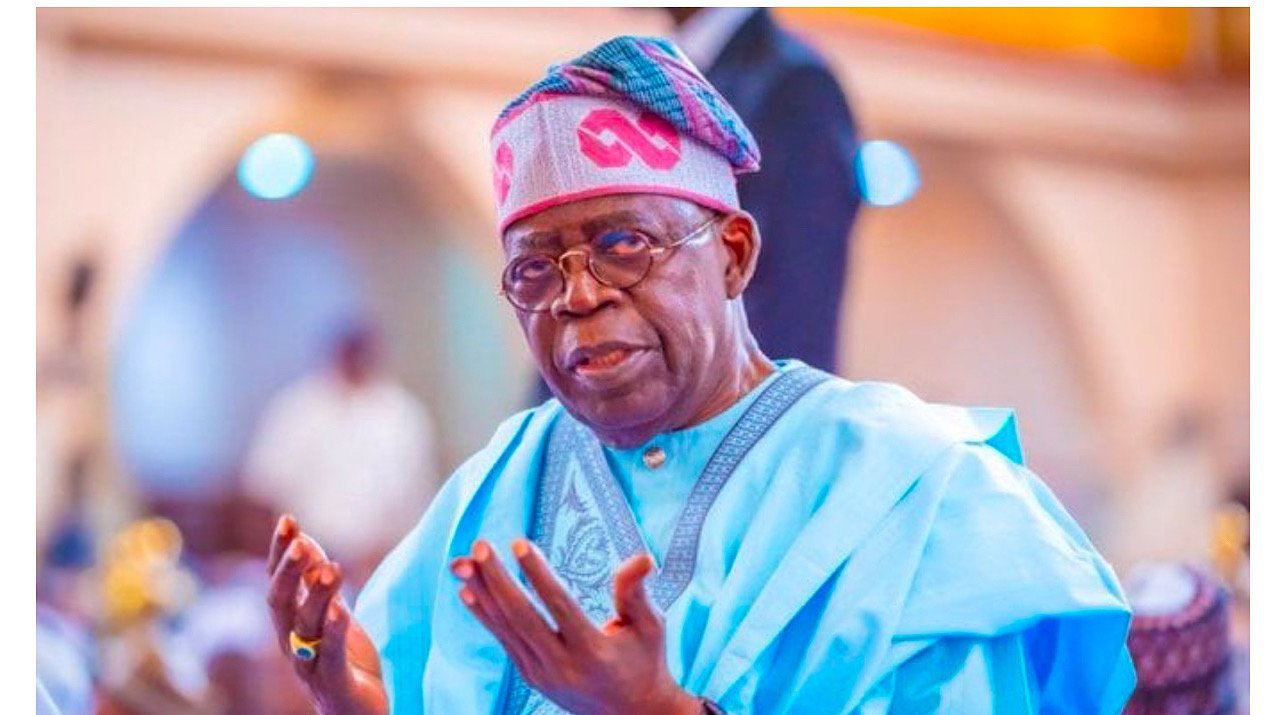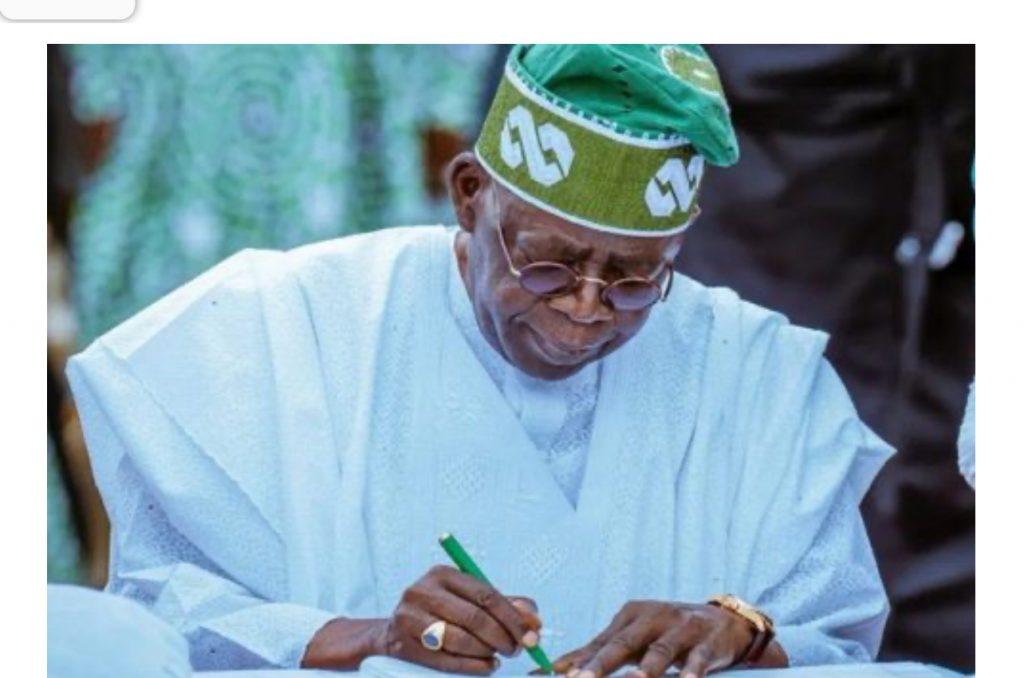news
FG to DisCos: You have failed, your days numbered


•Power Minister Mamman
The Federal Government, on Wednesday, declared that Distribution Companies (DisCos) have failed in distributing power across the country.
This is even as it has declared it will no longer subside the DisCos noting that despite doling out about N1.7 trillion to the companies in three years, they were only able to distribute 3,000mw out of about 10,000mw generated.
The Minister of Power, Saleh Mamman, made this closure at the end of the Federal Executive Council (FEC) meeting presided over by President Muhammadu Buhari.
Mamman who briefed alongside his colleagues from Ministries of Information and Culture, Water Resources, Industry Trade and Investment explained that while the DisCos were collecting the 3,000mw, they were only paying for 1,000mw.
The minister said the DisCos must show that they have the capacity to distribute power to Nigerians or surrender for more competent companies to be engaged.
Mamman said the government cannot continue to subside the companies without commensurate result.
The minister further disclosed that he presented the report before the council to decide immediately.
Recall that the governor of Kaduna State, Nasir el-Rufai, at the end of last month’s National Economic Council meeting disclosed that the Federal Government has spent N1.7 trillion on electricity in the last three years.
The governor who is the head of the ad-hoc committee on power had said: “What we have agreed on is that there are fundamental problems in the electronic supply industry, and that you cannot privatise an industry and then over three years since privatisation, you pump in N1.7 trillion of government into it. That is not privatisation.
“The Federal Government has supported the electricity sector with N1.7 trillion in the last three years and this is not sustainable. So, solutions must be found. Those solutions are not going to be nice. They may be painful, but the only way to solve the structural problems in the industry is to take some very difficult decisions.”
Giving details of what transpired at the council meeting, Mamman said: “We presented achievements right from the day we took the oath of office to date.
“We want to tell Nigerians what we achieved in the value chains. Nigeria can generate up to 13,000 megawatts of electricity but we cannot transmit all. So today, we presented to the council the solution to the problem of our generation. It is mainly distribution.
“We can transmit, we can generate 13,000 megawatts, we transmit 7,000 megawatts but can only distribute 3,000. There is a lot of work to be done in transmission companies and the government is now willing to take up the matter immediately.”
Asked what exactly the council has revolved to do, the minister said: “What I want to say is that most of the problem we are facing in this country that we cannot get electricity supplied adequately and efficiently is because we have a problem in distribution.
“Generation, no more problem. We can generate up to 13,006 megawatts but the transmission, those who are taking the electricity supply can only take 7,000 megawatts, even at that they are not taking the whole 7,000 megawatts but only 4,500 megawatts and then send to distribution, the distribution, in turn, receives only 3,000 megawatts. Because of the technical and commercial reasons, they cannot contain the whole power that has been generated.
“So, we have to correct the infrastructure. That is why I said that today, I submitted my observation to council and I believe the government is on it.
“One of the things I will tell you is that government has signed a memorandum of understanding with the German company, Siemen. They are to align between distribution and transmission and also generation.
“So that at the end of the day if we generate 13,000 megawatts, transmission will take the whole 13,000 and will distribute the same, that way Nigerians will be happy and everyone will have 24/7 electricity supply.”
On what will become of the DisCos, Mamman said: “The DisCos are the ones manning the distribution, that is why I have submitted my observations to the government; it is left for the government to decide.
“We just have to sit and see whether they are capable of – if they have the technical know-how because most of the problems we are having today are technical loss and commercial loss.
“They will give you power and may not collect your money or they will collect the money and pocket it, or they may send power and you may not have good sub-station that may collect this power and distribute it to customers. This has been our major problem and it is the responsibility of the DisCos to take care of that end.”
On what will now happen to the several financial interventions the government has made, Mamman said: “That is what we are saying, the government cannot continue subsiding because what they doing is that they collect 3,000 megawatts and pay for only 1,000 megawatts, that is 15 percent of what they are collecting; so government is the one completing the payment.
“So we cannot continue like that. So if they are ready to continue, fine but if they are not ready to continue maybe they should give way to whoever that is ready to come and invest. So, we are asking government to review and see if they are capable. Fine, but if they are not capable they should give way.”
On how the government will address the debts between DisCos and GenCos, between GenCos and gas producers, he said: “Well, we have come up with a plan, that issue of willing buyer, willing seller. You know there is the ardent capacity of generating electricity that we cannot pick at all.
“So we are now asking the GenCos…you can imagine we are only paying them 15 percent out of 100 so where do we take the remaining 85 percent? Even if Embet is collecting 100 percent, gas alone is taking 60 percent, only 15 percent is used for their overheads.
“So if they cannot week outside the agreement with the Embet you can see how they are struggling to get their money back. Embet buys electricity from DisCos, supplies to GenCos and collect money from DisCos and pay the GenCos, that is why we have the gaps and that is why we have to do something to correct these gaps. It is now government’s decision.”
Meanwhile, the FEC meeting has approved additional N6.9billion for the completion of the Tada Shonga Irrigation Project.
The project is located in Shonga, Kwara State.
The Minister of Water Resources, Mr Suleiman Adamu explained that the additional approval brought the total project cost to N10.18 billion.
The minister explained that the project was first awarded in 2010 but was later abandoned due to a lack of funds.
He said the decision to do augmentation and variation on the project and complete was in line with the Buhari regime’s stance to complete viable projects previously awarded.
The minster stated that the variation increased the size of the project from 1,500 hectares to 2,300 hectares of irrigation.
He added: “For that purpose, we sought for the augmentation and variation in the sum of N6.9 billion, raising the project from the original sum of N3.26 billion to N10.18 billion, with the completion period of 36 months.”
news
Security Reform: Tinubu Calls for Urgent Constitutional Backing for State Police


…raises fresh alarm over terrorism, banditry at State House Iftar
…Akpabio pledges more support, vows no executive bill will die in Senate
President Bola Ahmed Tinubu on Wednesday night formally urged the Senate to begin the process of amending the 1999 Constitution to provide for the establishment of state police, declaring that Nigeria must urgently restructure its security architecture to confront terrorism, banditry and insurgency.
Speaking at an interfaith breaking of fast with the leadership and members of the Senate at the State House, Abuja, the President said the time had come for lawmakers to “start thinking” about embedding state policing in the Constitution to enable governments at subnational levels better secure their territories.
“Nigeria is extremely challenged, we are facing terrorism, banditry, insurgency, but you never failed to make a right response to these calls. What I will ask for tonight is for you to start thinking how best to amend the Constitution to incorporate the state police for us to secure our country, take over our forests from marauders, free our children from fear”, Tinubu said.
The President’s latest appeal adds momentum to a campaign he has sustained since early in his administration.
In February 2024, during an emergency meeting with the 36 state governors at the State House, Tinubu approved the creation of a joint committee of federal and state representatives to explore modalities for establishing state police, insisting that the country must “move aggressively” to improve security of lives and property.
He renewed the call in November 2025, urging the National Assembly to begin reviewing relevant laws to allow states willing to establish their own policing structures to do so.
At the APC National Caucus meeting in December 2025, he again pressed governors and lawmakers to back constitutional reforms for state police and local government autonomy.
Only days ago, at an interfaith breaking of fast with governors at the Presidential Villa, the President declared that state police “can’t wait” and “will not be postponed,” urging preparations for what he described as a necessary shift in the nation’s security architecture.
At Wednesday’s gathering with senators, Tinubu framed the proposed reform as a constitutional obligation anchored on unity and shared responsibility.
“What you have faced in the challenging period of this country, the terrorism and banditry, is causing us havoc and we should pull together, unite in a way that our forefathers contemplated to bring about a constitutional democracy and pull us together. They didn’t say we should fight,” he said.
Beyond security, the President expressed deep appreciation to lawmakers for supporting what he described as bold and necessary economic reforms.
“I have a lot of credit for bold reforms. Without your collaborations, without your inspirations, those reforms are not possible. We are reformists together,” he said.
Tinubu defended the removal of petrol subsidy and foreign exchange reforms, describing them as steps taken to halt “monumental corruption.”
“What we gave up and what we stopped is a monumental corruption in subsidy. We gave it up. We don’t want to participate in monumental corruption, in arbitrage, foreign exchange,” he stated.
‘Amend Constitution to accommodate state police’
State police and questions Nigeria can no longer avoid
Senate backs state police, technology-driven reforms to boost Nigeria’s security
According to him, the reforms have laid the foundation for economic stability.
“You don’t have to chase me for dollars. In the past, you could see what Nigeria is today. You should be proud… What we are enjoying is stable economy, prosperity beckoning on us. We just need to work hard for it,” he added.
Responding to criticisms from political opponents, the President dismissed claims that he was stifling opposition voices.
“When they accused me of killing oppositions, I didn’t have a gun… I can’t blame anybody from jumping out of a sinking ship if they did,” he said, in apparent reference to recent defections.
He described the coincidence of Ramadan and Lent as symbolic of national unity and called for continued harmony between the executive and legislature.
“We are committed to Nigerian entity succeeding. We are committed to make law for the welfare, prosperity of the country. I think we are committed together to govern together,” he said.
In his response, President of the Senate, Senator Godswill Akpabio, assured the President of the chamber’s loyalty and continued cooperation.
“We have nothing to give to you than to assure you of our loyalty,” Akpabio said. “I’m sure you have noticed that nothing you have ever sent to us died in first reading, and it will never happen.”
He said the Senate painstakingly reviews executive proposals to ensure they serve national interest, even when they initially attract criticism.
“We sit down to painstakingly go through everything that comes before us, and then at the end, we see that it is in the interest of Nigerians, even when the social media is not seeing it,” he said.
Akpabio commended Tinubu’s tax reforms, foreign exchange unification, fuel subsidy removal and the recent electoral amendment, noting that the President promptly assented to the revised Electoral Act when convinced it served national interest.
He expressed optimism that by 2031, Nigeria would be more prosperous under Tinubu’s leadership and offered prayers for peace amid what he described as “troubles and sponsored insecurity” in parts of the country.
The Senate President also thanked Tinubu for appointing former Senator Jimoh Ibrahim as an ambassador, describing it as recognition of legislative talent.
The interfaith gathering ended with prayers for unity, wisdom and strength for the nation’s leaders as they navigate security and economic challenges.
news
BREAKING: Tinubu Names Tunji Disu Acting Inspector General After Egbetokun’s Exit


President Bola Tinubu has accepted the resignation of the Inspector-General of Police, Kayode Egbetokun, and approved the appointment of Tunji Disu as Acting Inspector-General of Police with immediate effect.
Our correspondent had earlier reported that Egbetokun tendered his resignation letter on Tuesday, citing pressing family considerations.
Appointed in June 2023, Egbetokun was serving a four-year term scheduled to conclude in June 2027, in line with the amended provisions of the Police Act.
In a statement issued on Tuesday by his Special Adviser on Information and Strategy, Bayo Onanuga, the President received the letter earlier on Tuesday and expressed appreciation for his service to the nation.
He also commended Egbetokun’s “decades of distinguished service to the Nigeria Police Force and the nation,” acknowledging his “dedication, professionalism, and steadfast commitment to strengthening internal security architecture during his tenure.”
“In view of the current security challenges confronting the nation, and acting in accordance with extant laws and legal guidance, President Tinubu has approved the appointment of Assistant Inspector-General of Police Tunji Disu to serve as Acting Inspector-General of Police with immediate effect.
“The President is confident that AIG Disu’s experience, operational depth, and demonstrated leadership capacity will provide steady and focused direction for the Nigeria Police Force during this critical period,” the statement read.
It added that in compliance with the provisions of the Police Act 2020, the President will soon convene a meeting of the Nigeria Police Council to formally consider Disu’s appointment as substantive Inspector-General of Police, after which his name will be forwarded to the Senate for confirmation.
The President reaffirmed his administration’s commitment to enhancing national security, strengthening institutional capacity, and ensuring that the Nigeria Police Force remains professional, accountable, and fully equipped to discharge its constitutional responsibilities.
news
Breaking : Nigeria Gets New Electoral Act as Tinubu Signs 2026 Reform Bill


President Bola Tinubu has signed the Electoral Act 2026 (Amendment) into law, days after the Independent National Electoral Commission (INEC) released the timetable for the 2027 general elections.
The signing ceremony took place at the State House, Abuja, at about 5:00pm on Wednesday, with principal officers of the National Assembly in attendance.
The National Assembly had on Tuesday passed the Electoral Act 2026 (Amendment) Bill.
The latest amendment comes amid intense public debate over the electronic transmission of election results in real time.
Last week, protests erupted at the National Assembly complex as civil society organisations and opposition figures mounted pressure on lawmakers to mandate live transmission of results from polling units directly to INEC’s central server.
The protesters argued that real-time transmission would reduce result manipulation and strengthen public confidence in the electoral process.
However, the ruling All Progressives Congress (APC) and some stakeholders have raised concerns about the technical feasibility of live transmission, particularly in communities with weak telecommunications infrastructure. They have argued for a phased or hybrid approach that would allow manual collation where electronic systems fail.
-

 news5 years ago
news5 years agoUPDATE: #ENDSARS: CCTV footage of Lekki shootings intact – Says Sanwo – Olu
-

 lifestyle6 years ago
lifestyle6 years agoFormer Miss World: Mixed reactions trail Agbani Darego’s looks
-

 health5 years ago
health5 years agoChairman Agege LG, Ganiyu Egunjobi Receives Covid-19 Vaccines
-

 lifestyle4 years ago
lifestyle4 years agoObateru: Celebrating a Quintessential PR Man at 60
-

 health6 years ago
health6 years agoUPDATE : Nigeria Records 790 new cases of COVID-19
-

 health6 years ago
health6 years agoBREAKING: Nigeria confirms 663 new cases of COVID-19
-

 entertainment1 year ago
entertainment1 year agoAshny Set for Valentine Special and new Album ‘ Femme Fatale’
-

 news9 months ago
news9 months agoBREAKING: Tinubu swears in new NNPCL Board


